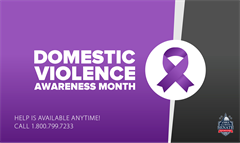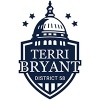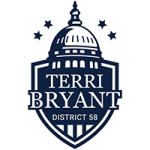Veto session set to begin
The start date for the Illinois General Assembly’s annual Fall Veto Session is quickly approaching. This year’s veto session, which occurs every year to provide legislators an opportunity to take up legislation vetoed by the Governor, is scheduled from October 24 to October 26 and November 7 to November 9.
Unlike last year, when the Governor vetoed only one bill, the Governor has issued a total veto of three bills and amendatory vetoes of three more bills. Most notably, the Governor issued a controversial total veto of Senate Bill 76, which would loosen the state’s decades-old ban on the construction of nuclear capabilities and allow for new advanced nuclear reactors to be built. Senate Bill 76 received large bipartisan support in the Legislature.
In addition to dealing with gubernatorial vetoes, the General Assembly’s Veto Session has traditionally been utilized to address other legislative items that weren’t completed or didn’t come up during the spring legislative session. The Illinois Senate Republican Caucus has called for this time to be used to repeal the sunset on the Invest in Kids program, which provides scholarship opportunities for low-income families to be able to attend a school of their choice. The program is set to expire at the end of the year if no legislative action is taken.
Additionally, some City of Chicago officials have asked that state lawmakers look at potentially shifting existing budget allocations toward additional migrant-related appropriations for Chicago. State Senator Terri Bryant says she wouldn’t be surprised if the Majority Party introduces a supplemental budget in light of those calls.
Be sure to stay up to date on what takes place this Veto Session by following the Senator’s Facebook.
Personal income in Illinois declines for first time since 2009

According to revised data from the Bureau of Economic Analysis, Illinois was one of seven states to see personal income declines during the last year. This marks the first time since 2009 that Illinois saw its personal income fall.
The revised data also showed that the U.S. growth rate was 1.9 percent, rather than the initially reported 2.1 percent.
Senator Bryant says that Illinois families continue to struggle with inflation and the increased cost of living, and that this data should underscore the dire need for the General Assembly to take action.
Return of deer hunting season
Deer hunting season has officially returned to the Land of Lincoln. Deer archery hunting season began October 1 and will run through January 2024. For Illinois residents, the application for a single deer archery either-sex permit is already closed. A combination deer archery permit or a single deer archery antlerless-only permit are still available for purchase over the counter at a licensed vendor until January 14, 2024.
The first firearm deer season is scheduled from November 17 to November 19; the second firearm deer season is set from November 30 to December 3; and the muzzleloader-only deer season is set from December 8 to December 10.
All 2023 deer lottery application periods are now closed. However, remaining county-specific permits after the Lottery 3 drawings will be available for sale over the counter only at license vendors on a first-come, first-served basis beginning October 17.
Important information to remember during the ongoing deer hunting season to remain safe and to avoid potential legal issues, includes:
- You must have a valid Illinois Hunting, Sportsmen, Youth or Apprentice License in addition to your deer permit.
- The hunting hours are one-half hour before sunrise to one-half hour after sunset.
- When in the field, be sure to wear your pink or orange outer garments.
- Drive with caution in areas where deer crossing signs are posted, as hunting season can cause deer to be more active.
For more information on safe hunting in Illinois, visit: https://dnr.illinois.gov/hunting.html.
October is Domestic Violence Awareness Month

The month of October is designated as Domestic Violence Awareness Month and has been held each year since 1989.
According to the National Domestic Violence Hotline, one in three women and one in four men have experienced some form of physical or emotional violence by an intimate partner within their lifetime.
Domestic Violence Awareness Month evolved from the National Coalition Against Domestic Violence’s “Day of Unity,” which was first observed in October 1981. The goal of that event was to connect advocates across the nation who were working to end violence against women and their children.
Now, Domestic Violence Awareness Month has expanded to build acknowledgement and support for all domestic violence survivors and to amplify the voice of its victims. You can learn more about Domestic Violence Awareness Month, including ways that you can get involved, by visiting the National Domestic Violence Hotline’s website.

